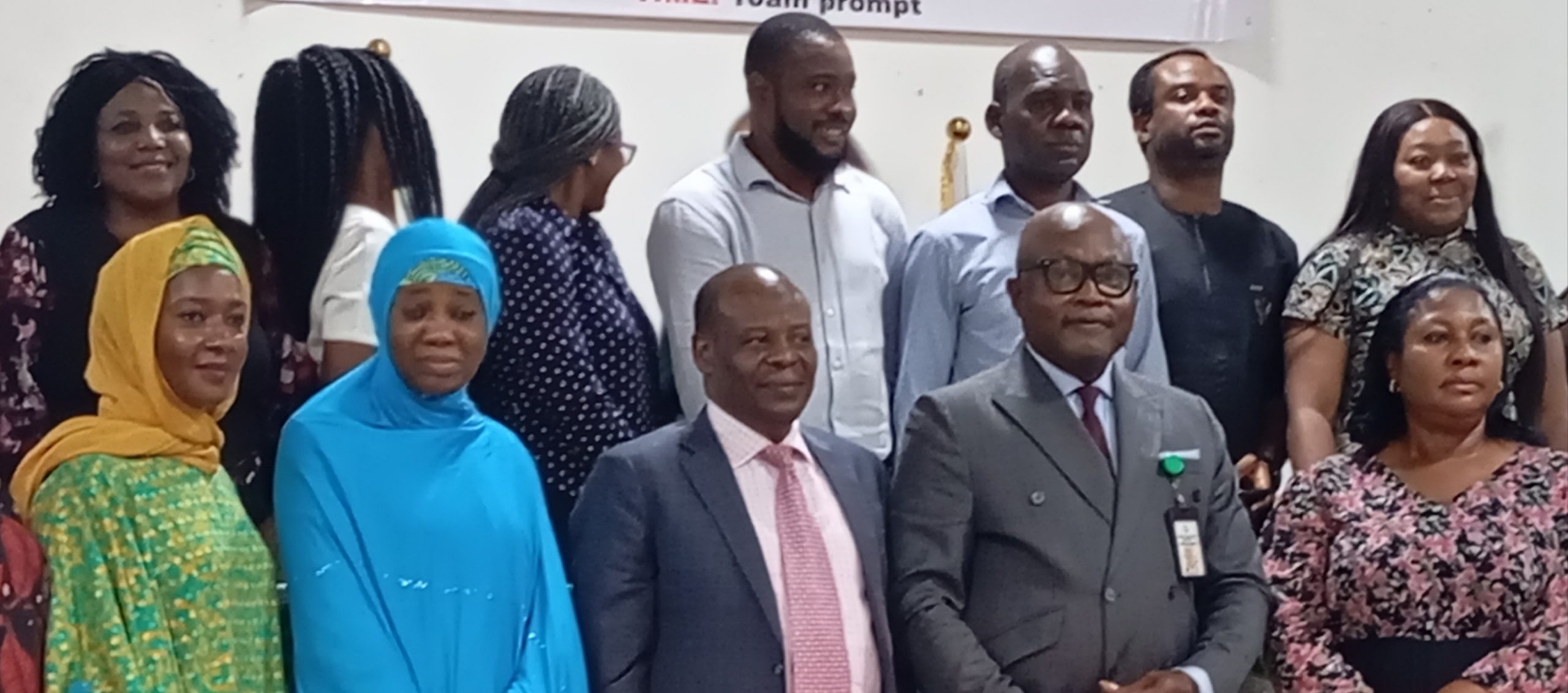Group photograph at the presentation of August to September, 2025 Human Rights Dashboard under the NHRC/UNHCR Project on the Promotion and Protection of the Rights of Forcibly Displaced Persons in Nigeria on 20th October, 2025. Photo credit: OPTIMUM TIMES
The Executive Secretary of the National Human Rights Commission (NHRC), Dr. Tony Ojukwu SAN, has disclosed that greater number of children, over 17,000 outnumbering adults, are worst hit by deprivations caused by consequences of being Forcibly Displaced Persons (FDPs) and Internally Displaced Persons (IDPs).
Ojukwu spoke at the opening session of the presentation of August to September, 2025 Human Rights Dashboard under the NHRC/UNHCR Project on the Promotion and Protection of the Rights of Forcibly Displaced Persons in Nigeria.
He applauded the project, observing that it has continued to serve as an essential platform for documenting, analysing, and responding to the human rights realities of Internally Displaced Persons (IDPs), Refugees, Asylum Seekers, and Returnees across eleven project states Adamawa, Akwa-Ibom, Benue, Bomes, Cross-River, Taraba, Kano, Katsina, Sokoto, Yobe and Zamfara.
Giving an insight into the data generated within the timeframe of two months (August and September), the NHRC Executive Secretary said: “The data presented today provides insight into over 37,000 individuals and more than 5,600 households reached under the IDP category alone across the two months, alongside their documented needs and vulnerabilities.
“It highlights cases across a range of human rights themes, including access to socio-economic rights and education, gender-based violence, child protection, health, freedom of movement, and documentation.
“The data is also quite revealing. Females consistently outnumber males in our overall reach, reflecting the feminisation of displacement. Most critically, our teams documented 17,683 children reached, underscoring the extreme vulnerability of minors caught in this protracted crisis.
“The highest numbers of recorded incident fall under Access to Socio-Economic Rights and Access to Education, with 674 and 700 cases identified respectively.”
Dr. Ojukwu whose address was presented by his representative, NHRC Director (Monitoring), Dr. Benedict Agu, lamented that the “FDPs cannot provide shelter or food for their households, and this demands urgent intervention from all relief agencies. The need for education for all cannot be overemphasised.
“The over 700 cases related to Access to Education reveal a long-term threat to peace and development. Whether due to lack of resources, teacher absence, or fear of abduction, the denial of education jeopardises the future of an entire generation of displaced children.”
He further observed that Gender-Based Violence (GBV) remains a scourge.
From the team of the field officers, he said they documented multiple cases across states, including rape, sexual abuse, harassment, and domestic violence.
Ojukwu advised that the protection architecture must be strengthened to respond effectively, ensuring that perpetrators are swiftly brought to justice and survivors receive the necessary legal and medical support.
He urged all governmental and non-governmental partners to align their resources to the critical needs identified in Zamfara, Benue, and Kano States, particularly in the thematic areas of food security, shelter and health.

 Business News1 week ago
Business News1 week ago
 News2 days ago
News2 days ago
 News3 days ago
News3 days ago



























